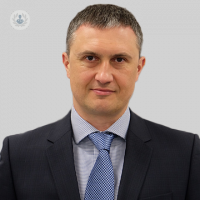Pain treatment
What is pain management?
Pain management is an interdisciplinary branch of medicine, which aims to improve quality of life for patients with chronic pain by reducing their suffering. It aims to relieve long-term pain, and may be administered by a single doctor, or a pain management team, consisting of different specialists. It can involve pharmacological or psychological treatments, or a combination of both.

Why would you need pain management?
While many branches of medicine focus on diagnosing and treating injuries and pathologies and treating the symptoms and pain during the healing process, pain management is needed when the pain persists after the injury or disease has healed. If the cause of the pain is not clear, relieving it becomes the objective. Patients with chronic (long-term) pain are the usual recipients. Types of pain that often require management include chronic back pain and headaches.
What does it involve?
There are many types of treatments to manage pain, which can be roughly divided into three categories: physical, psychological, and medicinal.
Physical treatments include physiotherapy, therapeutic physical exercise, the application of heat and/or ice, acupuncture, electrotherapy, and various interventional procedures, such as facet joint injections and spinal cord stimulation. Different sufferers may find different things help relieve their pain, such as massage therapy. Some treatments may have a psychological element, including the placebo effect.
Psychological treatments, such as cognitive behavioural therapy (CBT) and hypnosis have been used to treat pain, with varying reports on the efficacy. Studies have shown a small improvement in mood after CBT, but there is insufficient evidence to definitively say that it relieves pain. Similarly, studies on the effects of hypnosis have been limited, but shows signs of improvement. Some believe it the effectiveness of psychological treatments may be based on the placebo effect.
Medicinal treatments involves different kinds of drugs – mainly painkillers and anti-inflammatories. The type of drug depends on the location, severity, and probable cause of the pain. For example, mild pain can be managed with over-the-counter painkillers, while severe pain (after injury or surgery, for example) may be treated with opioids. Nonsteroidal anti-inflammatory drugs (NSAIDs) are widely used, and for conditions like fibromyalgia, antidepressants may be prescribed.
Due to the multi-disciplinary nature of the specialty, a pain management team can consist of medical practitioners, nurse practitioners, physiotherapists, psychologists, and other mental health therapists.















